UNITED STATES SWIM SCHOOL ASSOCIATION



FUELING POSITIVITY FOR A CULTURE THAT LASTS
Emotional Intelligence –The Leadership Skill for a Lifetime of Learning
WHY MANDATED REPORTER TRAINING MATTERS FOR SWIM SCHOOLS
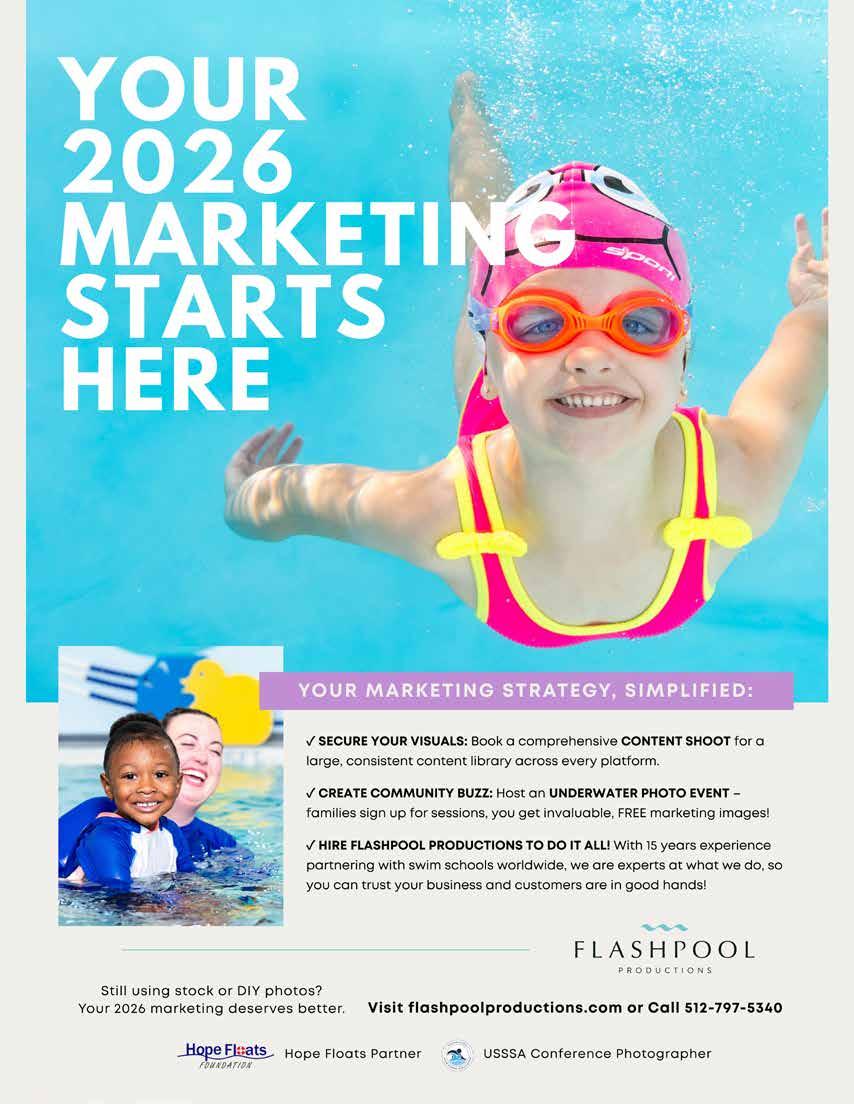

Celebrating Excellence: USSSA Certified Fundamental Swim Instructors
Fueling Positivity for a Culture That Lasts 10 Why You’ll Catch Me at the USSSA 2025 National Conference—And Why You Should be There too!
The Business of Swimming: More than a Mission
Making Waves in Pool Safety: The West Mobile Baby Fish School
Swim Skills for Today, Lesson for Life
How I Built my Pool Virtual Series
New Members Want to Know...
39 Taking Control of Your Time: When to Work, When to Delegate
41 Why Innovation Gets Stuck: The Real Cost of Playing it Safe
44 A Behind the Scenes Look at Your Next Favorite Conference 46 Getting to Know Your Board of Directors
ASSOCIATION HEADQUARTERS
4815 E. Carefree Hwy., Suite 108-480
Cave Creek, AZ 85331
480.837.5525
usssa@usswimschools.org usswimschools.org
Executive Director
Lisa M. Zarda, CAE, CNAP
Editor
Jessica Zimmer
ASSOCIATION OFFICERS
President
Buffy Folise, Chicago Swim School
Vice President
Rose Cholewinski, SwimAmerica – Davis
Treasurer
Debbie Sayers, DolFUN SWIM Academy
ASSOCIATION DIRECTORS
Susie Van Ekeren Wisconsin Swim Academy
Micha Seal Watermelon Swim
Ann Marie Sunderhaus Hubbard
Family Swim School
Melissa McGarvey British Swim School
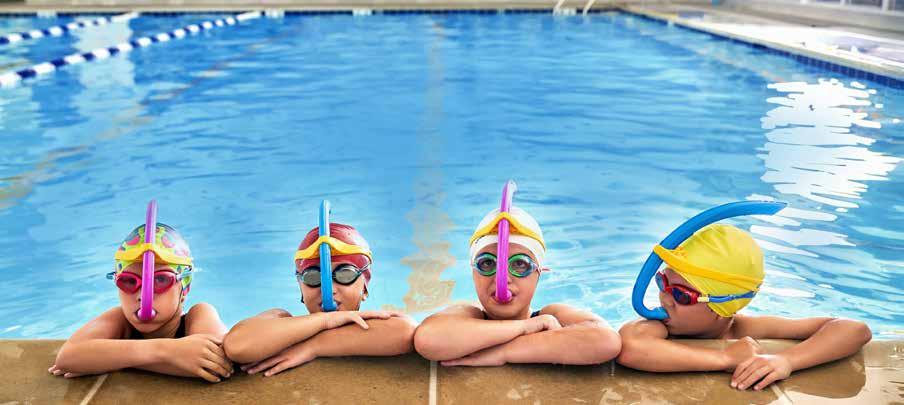

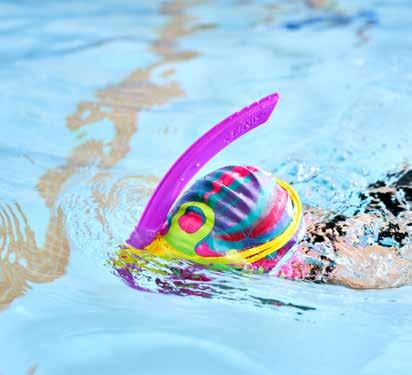
One of the greatest gifts we can give ourselves-both personally and professionallyis the commitment to be a lifelong learner.
Dear Members of the United States Swim School Association,
Since Spring 2005, I’ve attended nearly every USSSA Conference-both Spring and National. Even after almost 20 years, I still walk away from every event with a ton of notes that spark ideas, challenge my thinking and connect me with people who genuinely inspire me.
Over the past few years, I’ve been on a personal health journey-one that pushed me to think differently than I ever had before. At one point, I was so sick there were days I couldn’t walk. That season of life led me down a path of exploring holistic and eastern medicine-an area I never would have considered previously.
Through that experience, I realized…if I can think differently about health, what else could I think differently about? I started asking myself “What if I thought the opposite?” when I would have an opinion or idea. This simple question has changed the way I think. It’s helped me stay open, question my patterns, and consider fresh perspectives both personally and professionally.
I also enjoy reading, this year reading about 20 books-ranging from Outlive by Peter Attia, the EOS Data book, as well as many fiction books. I also listen to podcasts and watch YouTube videos on topics like finance, leadership and wellness.


BUFFY FOLISE President US Swim School Association
To me, learning doesn’t have an endpoint. Whether it’s through books, podcasts, or conferences, growth is a continuous process. It’s about staying open to new ideas, even if they don’t apply directly to your work-because sometimes the best ideas come from unexpected places.
USSSA Conferences are still my favorite sources of learning and connection. Each conference, I take away something valuable-sometimes it’s a direct takeaway, other times it’s just the spark of a new idea. Often, it’s not even the sessions that make the biggest impact-it’s the hallway conversation, sharing stories over dinner, or a passing comment that unlocks something new in my brain.
As we head into our next conference in Phoenix, I encourage you to explore your own journey as a lifelong learner. Sit with someone new. Ask a question you wouldn’t normally ask. Share something valuable. Get someone’s contact information and connect with them after conference. Reflect on what you learned-and maybe even challenge yourself to think the opposite.
We grow when we stretch ourselves-and the USSSA is one of the best places I know to do just that!
Looking forward to seeing you in Phoenix!!!

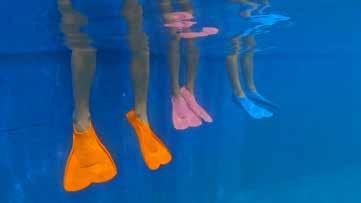
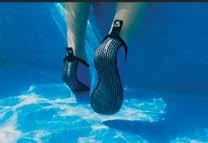



Lifelong learning isn’t just important for swim school owners. It can and should be woven into the fabric of your swim school. When a culture of learning is embedded in your team, growth becomes a shared goal, and the benefits ripple outward to your staff, your swimmers, and your families.
Here are five practical ways to make ongoing learning a living, breathing part of your swim school’s culture:
1. LEAD BY EXAMPLE
The culture starts with you. When you prioritize your own professional development, whether by attending US Swim School Association (USSSA) events, enrolling in training courses, or sharing insights from a great article, you send a clear message: learning is valued here. Mention what you’re learning in team meetings, post a “what I’m reading” board in the staff room, or bring back new ideas from conferences and invite feedback. Your enthusiasm sets the tone.
2. CELEBRATE LEARNING ACHIEVEMENTS
Recognize your team’s milestones the same way you do your students’. When an instructor completes a certification, attends a webinar, or makes a presentation at a staff meeting, acknowledge it publicly. Print certificates, give shout-outs during team huddles, and highlight ongoing education in your school’s communications. Recognition reinforces the value of investing in oneself and it’s contagious.
3. BUILD SHARED LEARNING INTO THE CALENDAR
Make education part of the operational rhythm of your school. Schedule regular in-service trainings, set quarterly learning goals, and encourage group participation in USSSA webinars and workshops. You might even host a monthly “Lunch & Learn” where staff take turns presenting on topics like teaching toddlers, managing class transitions, or handling parent concerns (use magazine articles from Ready, Set, Swim as topic inspiration). This consistent exposure builds both confidence and competence.
4. USE USSSA RESOURCES STRATEGICALLY
Take full advantage of the education and professional development tools offered by the US Swim School Association. From the Creating Next Level Baby Teachers course to our Certified Fundamental Swim Instructor (CFSI), to the leadership tracks at our national conference, these resources are designed to help you and your team grow. Assign USSSA online courses as part of onboarding, or build a professional development track that allows your instructors to progress in both skills and responsibility. USSSA offers a number of both paid and free online courses to help you supplement your staff training.
5. CREATE SPACE FOR CURIOSITY AND CONVERSATION
Learning doesn’t always require a formal setting. Encourage open dialogue about challenges and successes in the water. Ask instructors what they’re noticing, what

LISA M. ZARDA, CAE, CNAP Executive Director US Swim School Association
they’re questioning, and what they’d like to explore further. Foster a team environment where asking questions is welcomed. When curiosity is safe and encouraged, learning thrives.
Making learning part of your swim school’s culture is not about one-time trainings or occasional workshops, it’s about creating an environment where everyone is continually growing. When your team embraces learning as part of who you are and how you operate, you build a stronger, more adaptable, and more inspired swim school.
Start small, stay consistent, and remember: your leadership plants the seeds that shape your school’s future.


BY MARICARMEN SALETA
KEYNOTE SPEAKER AND CERTIFIED ENERGY BUS FACILITATOR
I still remember the first time I truly understood the power of positive energy in a team. It was not during a big keynote or a training session. It was years ago, led by one of the best leaders in the swim school industry, working side by side with instructors who showed up with heart, day after day. We were not just teaching kids how to swim—we were creating something deeper: a place where people felt safe, supported, and seen.
That experience planted a seed. Over time, I learned that no matter how many systems or certifications a school has, it is the energy, the people, the mindset, and the culture that shape everything. When that energy is positive and intentional, your school does not just function—it flourishes.
At this year’s USSSA National Conference, I’m honored to lead The Energy Bus workshop—an interactive and inspiring experience based on Jon Gordon’s best-selling book, designed to help swim school teams lead with joy, connection, and purpose.
This session is not about fixing problems—it is about amplifying the good.
WE WILL EXPLORE HOW TO:
• Choose your mindset and become the driver of your own bus
• Reconnect to your personal why and build a vision that excites you
• Create stronger, more trusting connections within your team
• Celebrate the joy of the work you do and the people you do it with
• Build a culture of gratitude, encouragement, and shared purpose
The workshop is designed for every member of your swim school team—from instructors to managers to front desk staff. Because the truth is, everyone contributes to culture. Everyone sets the tone. And everyone has the power to make your school a more joyful, uplifting place to work and grow.
You will not just sit and listen—you will reflect, move, laugh, and walk away feeling lighter, more focused, and re-energized. You will gain practical tools, but more importantly, you will be reminded that your energy, your attitude, and your leadership matter.
After spending the last two decades working with children, educators, athletes, professionals, and organizations across different cultures and communities, I have learned that people thrive not when they are pushed to perform, but when they are fueled with purpose, surrounded by support, and reminded that their presence matters. This is the heart of what I teach through The Positive Perspective: a mindset and a practice that helps individuals and teams lead with clarity, connection, and joy.
Positivity is not fluff. It is the foundation of impact. It is the fuel that keeps us going when things get hard. It is the reason people stay, grow, and give their best.
If you are ready to refuel, reconnect, and re-center your team on what matters most— come join us. Let’s ride The Energy Bus together and build a culture that lasts.

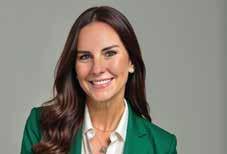

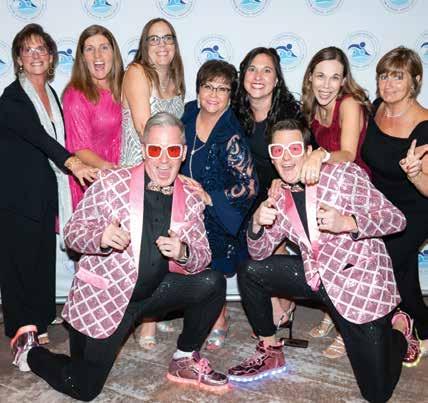
There are so many incredible benefits that USSSA provides for their member, but this is on of my favs! I’ve attended a lot of industry events over the years —but nothing compares to the magic of the USSSA National Conference. That’s why I’m counting down the days until this year’s gathering, happening September 28–30, 2025. Trust me, this isn’t just another conference—it’s a game-changer for anyone in the swim school world.
Let me give you a sneak peek of what’s coming…
IT ALL STARTS BEFORE IT EVEN STARTS
The pre-conference trainings alone are worth the trip! Whether it’s lifeguard certification refreshers or diving into the Creating Next Level Baby Teachers Workshop, these sessions always leave me energized and full of ideas to bring back to my team. And this year’s lineup? Even better than ever.
BEHIND-THE-SCENES SWIM SCHOOL TOURS
One of my favorite things is stepping inside other schools and seeing how they do things. The Swim School Tours are packed with inspiration—from layout ideas to creative class structures. You’ll leave with a fresh perspective, and probably a few “why didn’t I think of that?” moments.
SPEAKERS THAT INSPIRE & FIRE YOU UP
Let’s talk content. This year features 18+ incredible speakers—real experts who get our industry. From financial strategies and exit planning to emotional intelligence and even lessons from Ted Lasso (yes, really!), the topics are practical, powerful, and sometimes even a little unexpected. Each session reminds me why what we do matters so much.
REAL PEOPLE. REAL TALK. REAL GROWTH.
But here’s what really lights me up: the people. The community, the friendships. The heartfelt conversations in hallways and over coffee. You’ll meet seasoned school
BY SUSIE VAN EKEREN WISCONSIN SWIM ACADEMY

owners who are open books—ready to share their struggles, their wins, and the mentors who helped them along the way. You’ll find your people, whether you’re brand new or decades in.
I’ve made lifelong friends at USSSA events. I’ve cried, laughed, grown, and walked away with renewed purpose every single time.
DON’T WAIT. SERIOUSLY.
If you’ve been thinking about going— GO. Don’t wait for the stars to align. Don’t wait for the “perfect” moment. Sign up now, save your spot, and treat yourself to an experience that could truly change your business, your mindset,
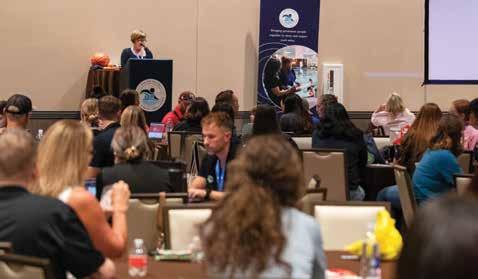







BY MELISSA MALONEY KEYNOTE SPEAKER AND CO-FOUNDER OF AWL
As leaders, we often think about the technical skills and knowledge needed to succeed in our industries. In the world of the water, that might mean understanding safety protocols, child development, and coaching techniques. But what about the skills that shape how we lead our teams, communicate with parents, and manage the inevitable changes and challenges in our businesses?
THAT’S WHERE EMOTIONAL INTELLIGENCE (EQ) COMES IN.
EQ is the ability to recognize, understand, and manage your emotions while also influencing the emotions of others. It’s not fixed—it’s a skillset that can be developed over time. For leaders, EQ is a game-changer. Research shows that leaders who use their emotions effectively inspire greater trust, build stronger teams, and achieve better results.
But EQ is about more than leadership effectiveness. It’s also critical for lifelong learning and growth—a theme deeply relevant in swim schools and our own professional journeys.
WHAT IS EMOTIONAL INTELLIGENCE?
The EQ-i 2.0 framework, a leading tool for measuring and developing EQ, breaks it into five key areas:
Self-Perception – Knowing yourself: self awareness, confidence, and purpose.
Self-Expression – Communicating emotions and thoughts effectively. Leaders strong here are authentic and build trust.
Interpersonal Relationships –Empathy, relationship-building, and responding to the needs of your team and clients.
Decision Making – Using emotions to make sound choices while staying grounded under pressure.
Stress Management – Resilience, flexibility, and optimism in navigating challenges.
Together, these create a roadmap for understanding how we use our emotions to shape each day both personally and as we lead others, and build the culture at work.
EQ AND LIFELONG LEARNING
Emotional intelligence isn’t static. It grows as we grow. With self-awareness and practice, we can continually increase our EQ and create impact for life.
This is where a growth mindset comes in. Carol Dweck describes it as believing our abilities and intelligence can develop through effort. Leaders with a growth mindset see challenges as
opportunities. Imagine telling a child afraid of water they’ll never swim— instead, we say “not yet” and help them take small, steady strokes forward.
When combined, EQ and growth mindset form a foundation for lifelong learning:
• Self-Perception helps us notice when we’re stuck in fixed patterns of thinking or behavior.
• Interpersonal skills open us up to learning from others’ perspectives.
• Stress Management allows us to manage the discomfort that often comes with stepping outside our comfort zones.
Imagine what’s possible when these qualities are flowing through a swim school—from the owner to the instructors to the youngest swimmers just starting their journeys.
3 WAYS TO START YOUR EQ JOURNEY?
Building emotional intelligence starts with small, intentional practices:
Pause and reflect – At the end of the day, ask yourself: What emotions did I feel today? How did they impact my decisions and interactions?
Seek feedback – Invite trusted team members to share how they experience your leadership.
Practice empathy – Next time you speak with a team member or parent, focus fully on listening rather than planning your response.
Each of these steps strengthens emotional awareness and creates space for growth—not just in your leadership, but in every aspect of your life.
As leaders in swim schools, you model what lifelong learning looks like. By growing your EQ, you create not only stronger teams and happier clients but also an organization where everyone— from staff to students—can shine.
Emotional intelligence isn’t just a leadership skill. It’s a life skill. And it’s never too late—or too early—to start building it.


Don’t miss her Keynote Session at the National Conference LEADING BENEATH THE SURFACE: EMOTIONAL INTELLIGENCE AS YOUR SECRET WEAPON
Melissa Maloney is a dynamic keynote speaker, facilitator, and co-founder of AWL Partners. With over 25 years of leadership experience, she helps organizations and individuals harness the power of Emotional Intelligence to drive performance, engagement, and inclusion. AWL Partners specializes in leadership development, coaching, and workshops that empower people and organizations to thrive. Learn more at www.awlpartners.com






BY ANGIE BAKER AQUA PROS SWIM SCHOOL
Creating a safe and supportive space for children isn’t just a core value in swim instruction; it’s a non-negotiable part of running a responsible and trustworthy swim school. Whether you’re teaching water safety to toddlers or mentoring teens in their first job, your role as a swim school operator or manager places you on the front line of child protection.
Beyond the moral imperative, there’s also a growing legal responsibility. As awareness and advocacy around child protection have expanded, so have legislative requirements for stronger safeguards across youth-serving industries. This includes training staff as mandated reporters. Individuals who are legally obligated to report suspected child abuse or neglect. Mandated reporter training ensures staff can recognize signs of abuse and know how to respond appropriately and legally. It’s a proactive step toward building a culture of safety, trust, and accountability throughout our swim schools.
In 2017, as part of a national initiative to protect youth athletes, the Safe Sport Act was passed, establishing a new standard for youth sports organizations across the United States. While originally aimed at Olympic-level and national governing bodies, its influence has extended to community sports and youth-serving programs, including swim schools, by establishing standards for background checks, limiting one-on-one interactions, and designating and training mandated reporters.
This federal momentum has led many states to adopt child protection legislation, and swim schools are included in that scope. Currently, 19 states and Washington, D.C. have laws requiring mandated reporter training for employees, directors, and volunteers in organizations that provide organized activities for children. This includes private swim schools, nonprofit aquatics programs, and municipal pool facilities.
Swim schools are uniquely positioned to lead in child protection because of the close relationships we build with families and the deep trust placed in our instructors. National youth organizations like Little League and many city and county recreation departments across the country have already made this type of training standard practice, because it’s the right thing to do. Swim schools, as pillars of water safety and youth development, should be no different.
As swim school owners and managers, we do more than teach swimming; we help shape childhood experiences and often provide teens with their first work opportunity. That means we must create a space where all young people, participants, and staff feel safe, supported, and seen. Training adult staff to recognize and report signs of abuse is a critical part of that commitment.
This applies to all youth-serving environments, including camps, youth centers, swim schools, recreation facilities, and sports organizations. By proactively implementing mandated reporter training, swim schools not only comply with legal requirements in many states but also demonstrate a deeper commitment to a strong culture of responsibility and accountability.
As business owners and managers in youth-serving industries, our responsibility goes far beyond providing great programs. It includes creating safe, structured environments for every child and teen who walks through our doors. That means protecting not only our young swimmers but also our minor employees, many of whom are navigating their first job experience. They depend on us to set clear expectations, model professionalism, and ensure they are treated with care and respect.
Training adult staff to recognize and report signs of abuse or misconduct is a critical step in upholding that responsibility. It fosters accountability, reinforces your swim school’s commitment to safety, and builds trust with families, employees, and the broader community.
Fortunately, many states now offer free mandated reporter training and resources, making it easier than ever to integrate this essential layer of protection into your onboarding and safety practices. These tools help ensure every member of your team, regardless of role, is prepared to act when something isn’t right, regardless of your swim school’s size.
Ultimately, our job isn’t just to teach swim skills or lead youth programs. It’s to create spaces where children and teens can grow, thrive, and feel truly safe.
Because when we lead with safety, everyone benefits.
For a comprehensive, state-by-state overview of mandatory reporter laws related to youth programs and swim instruction, visit: https://docs.google.com/spreadsheets/d/13xLpPhal6GHkU485AIVQrvoAxbWQeyuBvuistyvsGxo/edit?usp=sharing
Note: Laws change regularly. Always consult your state’s official legislation for the most current requirements1
1 RAINN. State Laws on Mandated Reporting. https://www.rainn.org/state-laws
Individual state legislative websites typically follow this format: https://leg.state.[state].us or https:// www.[state].gov.
Check your state’s Department of Health, Department of Social Services, or equivalent child welfare agency for official training portals. Example: https:// www.cdss.ca.gov (California).
These resources provide reliable guidance on who is considered a mandated reporter, what must be reported, how to report, and where to access official training—much of which is free and available online.
Simplify the way you manage your swim school with Jackrabbit Swim, the all-in-one software that empowers your team to work smarter, strengthen connections with customers, and boost efficiency.
Appointments and 1:1 Lessons
Absences & Makeups
Business Intelligence Reporting
Zapier & CRM Integration
Automated Billing
Next Day Payout & Capital Funding
Skills Tracking & Reporting
Mobile App







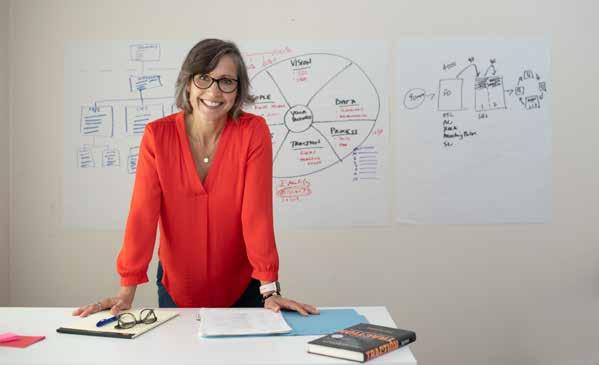
Even the savviest business owners can't do it all on their own. Gaining Traction® requires a team of people who have a clear understanding of what your vision is, and how to achieve it. Mary Reilly-Magee has over 20 years of experience owning her own swim school business and has been running on EOS since 2017, so she knows exactly how to match the right people together to build effective teams. She's spent years building relationships, being coached and coaching others. She can teach you how to get on the fast track to building an even better business now.
• 30-minute one-on-one conversation
• A safe, judgment-free space to talk about your business
• Experience shares and personalized resources
• A trusted referral resource with access to great implementers at all price ranges

• Annoying, salesy jargon
• Pressure to work with someone who's not right for you
• Untested business theory
eosworldwide.com/mary-reilly-magee
mary.reilly-magee @eosworldwide.com

We’re taking things to the next level! Our Infant Toddler Workshop has received thoughtful updates—and with it comes a fresh new name that says it all: Creating Next Level Baby Teachers
During this exciting course we share best practices to foster comfort, confidence, and success in swimming lessons without causing trauma. Our experts have over 115 years of teaching children under the age of 3 and their parents. The course builds upon your existing knowledge and gives you the tools you need to level up your teaching.
Creating Next Level Baby Teachers consists of two parts: the online course and the virtual or in-person workshop, with the online course required before attending the workshop. The course is regularly updated with new research and information, encouraging instructors to refresh their skills and continue learning by retaking both the course and the workshop periodically.
Aug 6, 13, & 20: We are offering a 3 part virtual series option for those that can’t give up an entire day!
Time: 11:30 am – 1:30 pm PST
Pricing: $159 for the full workshop series or $55 per individual session
Part 1: Elevating Your Teaching Style – August 6
Instructor: Tracy Laman, Houston Swim Club
Explore the core principles of teaching infants and toddlers to swim. This module covers essential guidelines for safe, trauma-free lessons, strategies for developing effective progressions, and foundational water skills that set the stage for confident swimmers.
Part 2: Accelerated Learning by Fostering Stronger Connections – August 13
Instructor: Kelly Gosselin, Little Flippers Swim School
Learn how to build strong connections with both children and their caregivers. This module focuses on mastering clear and compassionate communication, and introducing the concepts of balance, buoyancy and breathing.
Part 3: Integrating Child Development Into Your Lessons – August 20
Instructor: Kelli Stryker, SwimJim
Deepen your knowledge of child development to tailor lessons to each learner’s needs. This module shows you how to bring all course elements together to create engaging, effective, and developmentally appropriate swim experiences.
*The Creating Next Level Baby Teachers pre-course must be taken online prior to the workshop. The price includes the pre-course. The pre-course and full Workshop must be complete to receive a certificate.
Sept 27th In Person Pre-Conference Workshop!
Instructor: Tracy Laman, Houston Swim Club
Date: Saturday, September 27, 2025
Time: 12:00 pm – 5:00 pm MST
Location: Sheraton Phoenix Downtown, 340 N 3rd St. Phoenix, AZ 85004
Workshop Cost: $159.00 (includes the Creating Next Level Baby Teachers Online Educational Pre-Course)
Add this Pre-Conference Workshop to your National Conference Registration. Contact D’Nette to register team members that are not attending the conference.
*The Creating Next Level Baby Teachers pre-course must be taken online prior to the workshop. The price includes the pre-course. If you have taken the online pre-course please contact the office for a discount code. admin@usswimschools.org
Filtration, disinfection, and circulation solutions trusted since 1956
Scan the QR code to learn how we can help your facility:
• Minimize downtime
• Lower operational costs
• Enhance bather experience
• Deliver clean and clear water
• Protect against chlorine-resistant pathogens
• Save water, chemicals, energy, and space







FOR MORE DETAILS, VISIT: USSWIMSCHOOLS.ORG/EVENTS
AUG 6
CREATING NEXT LEVEL BABY TEACHERS WORKSHOPPART 1
VIRTUAL
AUG 13
CREATING NEXT LEVEL BABY TEACHERS WORKSHOPPART 2
VIRTUAL
AUG 19
USSSA TOWNHALL: MEET THE 2025 BOD CANDIDATES VIRTUAL
AUG 20
CREATING NEXT LEVEL BABY TEACHERS WORKSHOPPART 3
VIRTUAL
SEPT 27
CREATING NEXT LEVEL BABY TEACHERS WORKSHOP (FULL WORKSHOP IN ONE DAY!) PHOENIX, AZ
SEPT 28–30 2025 USSSA NATIONAL CONFERENCE PHOENIX, AZ
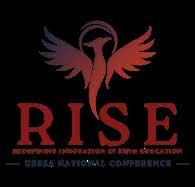







A3 PERFORMANCE
AQUAMENTOR
BYLINE BANK
COMMERCIAL ENERGY SPECIALISTS (CES)
COUNSILMAN-HUNSAKER
CRESSI SWIM
GREEN SPROUTS INNOVATIVE PRODUCTS UNLIMITED (IPU)
NEPTUNE BENSON, XYLEM
PROVEN PROMOTIONS
SBR SPORTS INC – TRISWIM KIDS
SPORTSENGINE MOTION
VORGEE USA
3rd Level | p30
A3 Kids | p11
Aqua Mentor | p26
Byline bank | p45
Career Plug | p9
CES | p42
Counsilman-Hunsaker | p12
Cressi | p4
EOS | p20
FINIS | p2
Flashpool Productions | Inside Front Cover
Green Sprouts | p27
iClass Pro | p6
IPU | p15
Jackrabbit Swim | p19
Neptune Benson | p22
Paddock | p33
Proven | p35
Risk Management | p40
Splash About | p16
Sports Engine Motion | p35
Starfish Aquatics Institute | p38
Swim Flux Systems | p43
Tri Swim | p27
Vorgee | p37

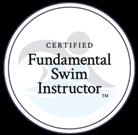
We are excited to celebrate the achievements of those who have recently become Certified Fundamental Swim Instructors! Passing the CFSI exam is a significant accomplishment, reflecting your expertise and dedication as swim instruction professionals. We are proud to have you in our community and look forward to your continued contributions and commitment to excellence in swim education!
JOEANN FOSTER
Aquatics South Sturgis, MS
SETH FOSTER
Aquatics South Sturgis, MS
ABIGAIL FOSTER
Aquatics South Sturgis, MS
JENNA JONES
Mac’s Swim Clearwater, FL
SYDNEY KAY
YMCA of Coastal Georgia Pooler, GA
ABYGALE KUEHN
YMCA of Coastal Georgia Pooler, GA
JENNA MCMANUS
Pods Swimming
East Providence, RI
RORY SEWELL
Nitro Swimming Bee Cave, TX
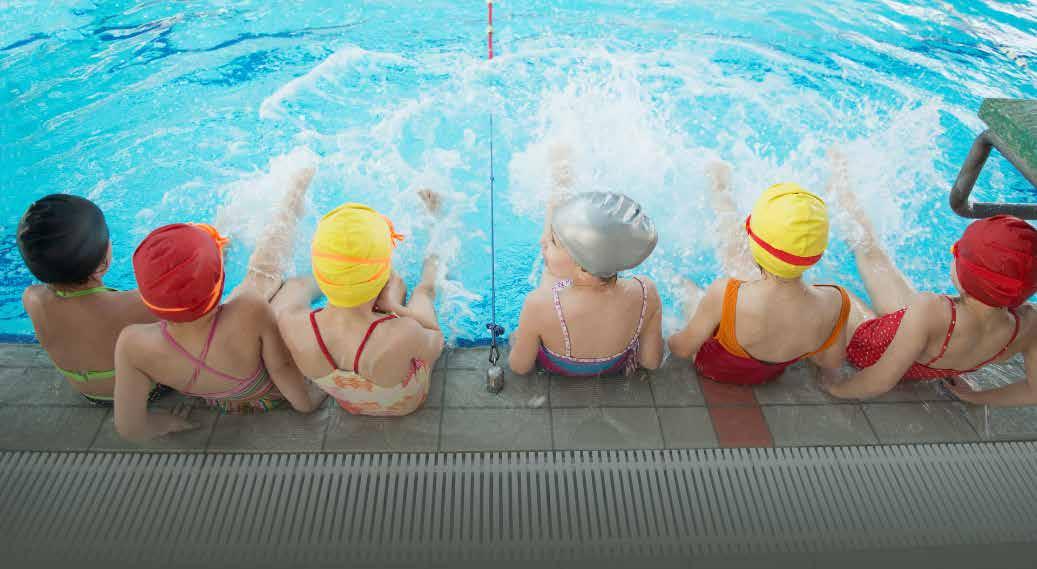
There’s something truly remarkable about watching a child learn to swim.
At first, the movements are uncertain. Confidence is low. But, with steady guidance and repetition, something shifts. Motion becomes rhythm. Hesitation turns into trust. And eventually, the swimmer moves forward. Unassisted and unafraid.
And, the same can be said for strong businesses.
Swim schools are built on mission. On the belief that swimming is a life skill. And, that water safety saves lives. But, behind every mission is a business that must be just as resilient. Just as focused. And, just as equipped to navigate forward with clarity and confidence.
Swim school owners are leaders in every sense of the word. They lead teams. They shape young lives. And, they build cultures rooted in purpose. But even the strongest leaders can find themselves without the financial visibility they need to support their growth.
It’s not a matter of will, or intelligence. It’s a matter of time. Tools. And, prioritization. In the face of rapid growth, seasonal fluctuations, and rising costs, the financial side of the business often ends up reactive. Not broken. But, sometimes a bit blurry.
Continued on next page...
BY MICHELLE M. DELKER CPA, MSA FOUNDER AND CEO OF THE WILLIAM STANLEY CFO GROUP
And when the financial picture is unclear, pressure builds. Decisions stall. Expansion slows. Margin shrinks. And, stress increases. None of this serves the mission.
But the good news is this: financial clarity is learnable. Repeatable. And, well within reach.
Mission can power momentum. But margin helps sustain it.
Creating a strong business doesn’t require mastering every detail of finance. It starts with three fundamentals:
• Read the full picture. Income statements tell part of the story. The balance sheet tells the rest — cash health, liabilities, receivables, and the business’s true financial position. Reviewing both regularly is key to confident decision-making.
• Forecast forward. A simple 13-week cash forecast is one of the most powerful tools a business can adopt. It helps leadership anticipate challenges, absorb seasonality, and make proactive decisions rather than reactive ones.
• Elevate the support. The right financial infrastructure brings clarity,
not confusion. Timely reporting, thoughtful insights, and strategic guidance allow leaders to spend less time chasing numbers — and more time driving the mission forward.
The day-to-day demands of running a swim school are significant. The impact is undeniable. But leadership shouldn’t come at the cost of sustainability or peace of mind.
When financial systems and visibility catch up to the level of purpose, everything changes. Growth accelerates. Margin improves. Headspace clears. And, decisions become deliberate instead of urgent.
That’s the difference between a missionled organization that survives — and one that thrives.
This is the heart of our upcoming session:
It’s not just a conversation about numbers. It’s a conversation about alignment. About leading with tools that match the weight of the work. And, about ensuring that the business is just as strong as the mission behind it. Because the mission matters. And it deserves a business built to last.


THE BUSINESS OF SWIMMING: MORE THAN A MISSION
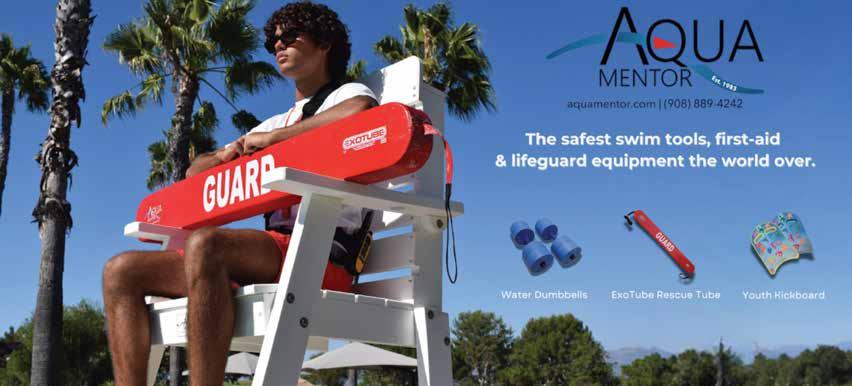
three prints per size for easy ordering






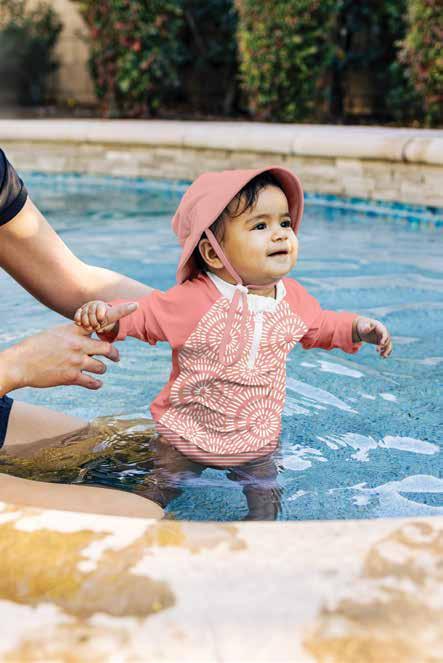

0 % OFF everyday at o2cbrands.com USSSA members receive 1



BY WATERGURU
In the heart of Mobile, Alabama, Lauren’s passion for teaching infants life-saving swimming skills was put to the test daily – not just by the challenges of instructing babies, but by the constant battle to maintain safe pool conditions. West Mobile Baby Fish School, a year-round facility dedicated to infant and toddler swimming lessons, faced a unique set of challenges that threatened to sink their mission of creating confident, safe young swimmers.
THE DEEP END OF POOL MANAGEMENT
Lauren grew up in a family of swimmers and coaches, so opening her own swim school seemed like a natural progression. She grew up working for her dad and teaching swim lessons when a few years ago discovered a self-rescue program for babies. She notes, “I had taught kids swimming my whole life, but never that young and never with teaching infants to save themselves.“
What she didn’t anticipate was the constant worry over water chemistry that came with running an indoor pool facility catering to over 70 babies per day.
“We teach a lot of young children, including infants, and that is accompanied by a high fecal load that can quickly turn the pool unhealthy,” Lauren explained. The constant cycle of infants and toddlers, each spending just ten minutes in the warm water, equating to six lessons per hour, created a perfect storm for rapidly changing pool conditions. On any given day, Baby Fish Swim School can have over 70 babies in the pool. That’s a serious human load on this body of water causing chlorine levels to continually fluctuate, sometimes dropping precipitously during these safety lessons. “We can’t be teaching safety lessons when the water itself becomes unsafe. Water quality had become the single biggest impact on running our business.”
John Bergoon, Lauren’s husband, also the pool’s defacto maintenance manager, found himself making frequent trips to manually test the water. “Previously, it was necessary for me to physically drive across town in the morning, before heading into the office for my real job, to check the chemistry levels. This was an unhelpful distraction from my day job in the tech industry,” John recounted. “Other days, Lauren would call me in the middle of the day reporting a problem, and I’d have to run over there to decipher what’s going on.”
“The consequences of this constant water chemistry battle were severe. Occasionally, the school had to close due to unhealthy pool conditions, risking reputation and the safety of their young students. Lauren recalled distressing incidents: “We’ve had to close the pool several times last year when accidents occurred from leaky diapers.”
Just when Lauren and John felt they were drowning in pool maintenance woes, they discovered WaterGuru SENSE. This AI-powered pool health monitor promised to transform their approach to water quality management.
The installation of WaterGuru SENSE marked a turning point for West Mobile Baby Fish School. John’s eyes lit up as he described the change: “Since installing the SENSE, I closely monitor the chemicals from the WaterGuru app on my phone, get alerts when the chemicals are beginning to fall out of balance, and when needed, respond quickly by rebalancing the chemicals, and even before arriving on-site, turning the pumps on remotely. It’s been a
game changer remotely monitoring the pool conditions from anywhere, and getting precise chemical dosing advice within the WaterGuru mobile app.”
The impact of WaterGuru SENSE was immediate and far-reaching. Gone were the days of unexpected pool closures and frantic mid-day trips to check water chemistry. The system’s ability to automate chemical testing and monitor pump flow – set by John to take measurements at 4 AM, noon, and 3PM provides a comprehensive picture of the pool’s health throughout the day. No longer is the water quality a mystery, and the SENSE has helped avoid costly downtime, enhancing the school’s reputation as a safe pool for teaching.
Lauren noticed a significant improvement in the learning environment. “If the chlorine is too high, or the pH is off, it impacts both our instructors and their small students, with off-gassing making the indoor air quality uncomfortable, impacting the instructor’s ability to teach. Now, we can prevent these issues before they start.”
For John, the change was personal. “I’ve reclaimed my life,” he said with a smile. “Now, unless the WaterGuru SENSE tells me I need to do something, I go straight home after work and relax. I no longer head into the office worrying about what’s transpiring miles away at Baby Fish swim school.”
The benefits extended beyond just convenience. The school maintained its stellar reputation for safety, avoiding costly pool downtime and associated health risks. The indoor
air quality improved, creating a more comfortable environment for both staff and students.
Today, West Mobile Baby Fish School is thriving by focusing on their true passion – teaching life saving swimming skills to infants and toddlers. Lauren beams with pride as she describes their impact: “What we do, it’s very rewarding. We make so many great relationships with these families that are long-lasting.”
Thanks to WaterGuru SENSE, Lauren, John, and their team can dedicate their energy to nurturing these relationships and skills, rather than worrying about negative impact by unhealthy water chemistry. As John puts it, “It’s no longer about working hard, but working smart.”
In the end, WaterGuru didn’t just solve a pool maintenance problem; it helped a passionate team continue their mission of creating a safer world for young swimmers, one baby at a time.




Swim lessons are about far more than mastering a perfect stroke. When a child walks onto your pool deck, they’re not just learning how to float or breathe to the side—they’re learning how to face fears, persevere through challenge, and grow confidence in themselves. These are not just swim skills. These are life skills.
The goal is to communicate that clearly—not just to your swimmers, but to your staff and the parents who trust you with their children. When your team understands the bigger picture, they’re more likely to stay calm in chaotic moments. When parents see what’s really being built in that 30-minute lesson, they will understand that the value of what you offer cannot be measured in laps swum or strokes mastered. Here are two powerful life skills being developed in your swim school. Feel free to repurpose these examples to train your staff or communicate with your families.
BY KIM LINDAUER, KEYNOTE SPEAKER AND OWNER OF HEART CENTERED SPORTS

What does it mean to be resilient? It’s the ability to bounce back. To try again. To tolerate disappointment and failure but keep going.
You see resilience in the child who is afraid to put their face in.
In the one who clings to their parent on the bench.
In the one who did not move up levels, even though their friend did.
These are the moments. The ones that shape kids into strong, brave humans. Don’t miss the chance to name it.
They don’t always know they’re building resilience—but you do. And you can tell them.
How?
Validate the Feeling Offer Encouragement
Point Out Resiliency
Scenario 1: A child is disappointed that their friend moved up but they did not.
• Validate the feeling:
“It looks like you’re feeling discouraged that your friend moved to a different group. That’s really hard.”
• Offer encouragement: “I know you can do this. You are so brave.”
• Point out resiliency:
“You were nervous to stay in this group after your friend moved AND you did it. Did you know that you were this tough?”
Scenario 2: A child is feeling nervous to put their face in the water.
• Validate the Feeling:
“You’re feeling afraid to put your face in. I get that. I was scared of that too when I was a kid. And now look—I’m a swim coach!”
• Offer encouragement:
“I’ll be right here with you. I won’t let go. Last week you wouldn’t even put your foot in, and now you’re sitting in the water. You’re getting braver every time you show up.”
• Point out resiliency:
“You should be so proud of yourself. You were afraid to put your face in, and you did it. That is not easy. How did you do that?”
2. DELAYED GRATIFICATION
Kids (and adults) right now are addicted to immediate gratification. Every ding on our phone, streaming service, search result, and Tik Tok video is created to give us a hit of dopamine and immediate answers.
We are not used to working slowly and steadily in pursuit of progress. But swim lessons are the perfect opportunity to work on this skill. The child comes in each week and slowly, slowly improves
until one day - they are ready for the next level. What an incredible life lesson. Again, the key is helping the child understand what they are doing. So, how can you help them understand what skill they are building? You point it out.
“Three weeks ago you couldn’t keep your legs straight when you kicked—but you’ve practiced every week, and now look at you!”
“Remember when you wouldn’t even put your face in? Today you swam the whole length. That’s what hard work looks like.”
WE ARE ALL ONE TEAM!
Teach these skills to your staff. And remind your parents that their children are learning more than swim skills when they are in your pool. We are all on the same team, working to support children as they grow. You are not just helping kids become strong swimmers—you are helping them become strong humans. And the lessons they are learning in your pool? They’ll carry those for life.
Dive deeper by attending my keynote session at the upcoming USSSA National Conference.
And if you’re ready to take this work even further - I’d love to visit your swim school and work with you and your staff, or explore ways we can collaborate. www.HeartCenteredSports.com
Be sure to say hello when you see me at the Conference in Phoenix- I’d love to meet you!


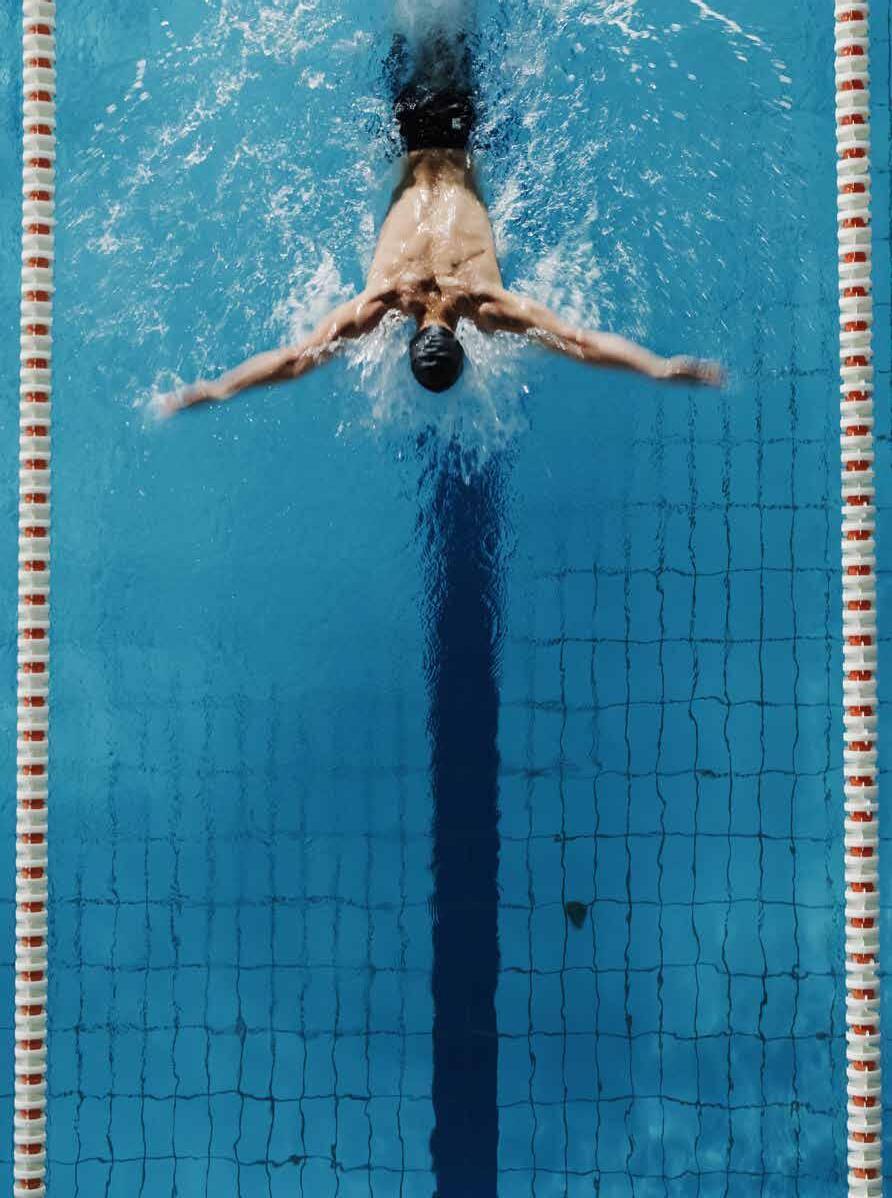






Have dreams of building or expanding your own learn-to-swim facility but not sure where to start (or how to stay afloat during the process)? We’ve got you covered.
Introducing the “How I Built My Pool” series – a four-part virtual seminar designed to take you behind the scenes with real leaders who have done just that. Learn what worked, what didn’t, and what they wish someone had told them before they broke ground. Whether you’re still sketching ideas on a napkin or knee-deep in blueprints, this series is packed with practical knowledge and real-world lessons.
All sessions begin at 8 AM PST $50 per session or get the full series for just $159
PART 1:
FINANCING AND LOANS –NOV. 5
With Jeff Van Ekeren
Dive into funding with Jeff as he walks through loan options, investor strategies, and how to build a financial plan that doesn’t sink you.
PART 2:
ARCHITECTS, CONSTRUCTION & ZONING – NOV. 7
With Phil Garner
Design meets reality. Phil covers the good, the bad, and the concrete-hard truths of working with architects, zoning boards, and contractors.
PART 3: SETBACKS AND CHANGE ORDERS –NOV. 11
With Tracy Koleber
Every project hits rough water. Tracy shares how to navigate surprise delays, costly curveballs, and those infamous change orders without losing your sanity.
PART 4: OPERATIONAL PLANNING AND LAUNCH – NOV. 13
With Lori Klatt
Your facility is built — now what? Lori maps out how to get your swim school staffed, marketed, and ready for its grand opening.
Attend one or all — but trust us, you’ll want the full set!
Registration opens August 6 — get ready to build your dream the smart way.



AQUATICS SOUTH
Joeann Fosterr Sturgis, MS
CHILDHOOD DROWNING PREVENTION FOUNDATION
Tenaya Goldsmith Norco, CA
FIRST STROKE AQUATICS
Darcentia Turner Charlotte, NC
HAMPTON AQUATICS AND FITNESS
Audrina Hampton Battle Creek, MI
PHOENIX SWIM ACADEMY
April Mate Corona, CA
CHARLESTON SWIM SCHOOL
Sarah Baldwin Charleston, SC
AQUATICS UNIVERSITY
Donna Connet Rockwall, TX
123 SWIM ABC
Brigitta van Noetsele Kennedy Space Center, FL

“WHAT LEARNING OPPORTUNITIES DOES THE USSSA OFFER THAT I SHOULD BE TAKING ADVANTAGE OF?”
“USSSA OFFERS A VARIETY OF LEARNING OPPORTUNITIES THAT I GREATLY VALUE AND BELIEVE ALL SWIM SCHOOLS SHOULD TAKE ADVANTAGE OF, INCLUDING THE ANNUAL CONFERENCES, REGIONAL WORKSHOPS, AND VIRTUAL WEBINARS.
The conferences are especially beneficial for staying current on industry trends, connecting with other swim school owners/staff, and learning about new teaching techniques, safety standards, and business strategies. I also find the leadership and management sessions extremely helpful for developing my team and improving operational efficiency. Additionally, the online resources and networking groups provide ongoing support and new ideas throughout the year.”
KALEB WALLEN OWNER, STEVE WALLEN SWIM SCHOOL
ONE OF THE BEST PROGRAMS USSSA OFFERS IS THE MENTOR/ MENTEE PROGRAM.
You get to be connected with a mentor who has a lot of experience with the swim school business. You build a lifetime relationship with your mentor. They can help you with whatever you need in the swim school business. All mentors and mentees also meet on zoom calls during the year so you can get your questions answered by the group.
JEFFERY PURCHIN
RETIRED,
FOUNDED THE 5 CITIES SWIM SCHOOL
ONE OF THE MOST VALUABLE BENEFITS OF BEING A MEMBER OF THE USSSA IS THE ACCESS TO ONGOING EDUCATION AND TRAINING OPPORTUNITIES FOR OUR INSTRUCTORS.
These certifications help our swim school and team stay current with industry trends, safety protocols, and best practices for teaching swimmers of all ages and abilities. We’ve proudly enrolled many of our swim instructors in USSSA’s Preschool, Infant/ Toddler, and Special Abilities courses. After completing these trainings, our team members consistently express feeling more confident and better equipped in their teaching approach. These educational opportunities are not just beneficial—they’re a meaningful investment in the quality and growth of our swim school.
When families choose Water You Wading For Swim School, they’re choosing a team that is actively learning, continually improving, and deeply committed to their child’s success and safety in the water. And these are just a few of the certifications available—there’s always excitement when a new course date is announced!
AMY BYKOWSKI OWNER, WATER YOU WADING FOR
Specifically, I gain a lot from the Virtual Workshops and the On-Topic Sharing Solutions. Both are a great way to learn from fellow swim school owners and add new ideas to the toolbox. Of course, the annual conferences are always amazing. Between the speakers and the networking, I take so much away!
ALLIE LERICHE OWNER, CHARLOTTE AQUATICS
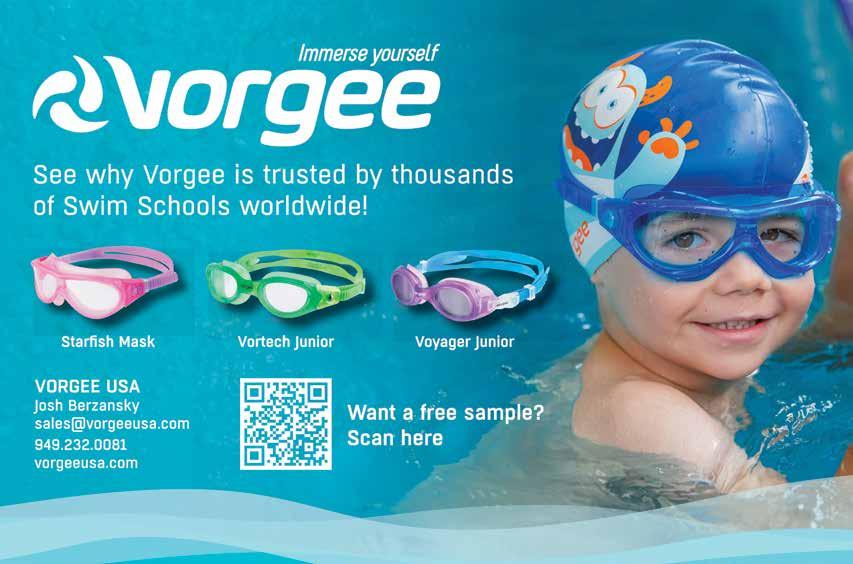


BY: JOHN SPENCE JOHNSPENCE.COM

Imagine if every minute of your day was tracked, categorized, and analyzed—not just meetings and calls, but every interruption, every email, and every moment of reflection or lack thereof.
This was the reality for 27 CEOs who participated in a comprehensive study by Harvard Business School’s Michael Porter and Nitin Nohria. Over 60,000 hours of their time were meticulously documented, revealing not just how they spent their days but also how their choices impacted their organizations.
The findings were startling. On average, these executives spent 36% of their time on things that were not a good use of their time. However, the most effective leaders were the ones who focused on what only they could do. They were ruthless about investing their limited time in high-leverage areas.
I do a similar exercise with the executives I coach. I start by asking them to write out how they would spend their time in an ideal world. If they truly optimized their calendar, what would that look like? Then, we track their time for two weeks. After 14 days, we compare what they said they should be doing versus what they were doing. It’s usually an ugly picture.
One executive discovered that he worked an average of 78 hours per week. Into the office early, head home late at night, and block one full day on the weekend for work. He never saw his kids, had no time for exercise, or did anything for relaxation. He was involved in every decision in the organization. Because of that, he taught his staff not to make any decisions. Unfortunately, because of his schedule, it often took a
week or more for a staff member to get a decision. This pushed back projects, led to cost overruns, and created a sense of helplessness and frustration for his people. His lack of discipline with this time created significant issues for the organization.
On the other hand, another executive I coach decided to take control of her time. She made a rule that no one could put a meeting on her calendar without her approval. This did not mean she wasn’t accessible. It made people more prepared. They came with clearly defined problems, options outlined, and a recommendation in hand. She also determined the things that only she could do. The list was short: high-stakes decisions, meeting with key customers and stakeholders, working on strategy, interacting with her executive team, and staying connected to employees. Everything else was delegated or eliminated.
As an executive, how you spend your time sends a strong signal. It indicates your priorities and lets people know what they should focus on. It’s a lesson to everyone about delegation and trust. It teaches people to respect their own time and that of other people. It is also an essential skill for successful leaders.

BY MADDIE GRANT

Organizations love to talk about innovation, but they often fall short when it comes to actually doing it. This article explores how a commitment to competence and playing it safe undermines real innovation—and what you can do to break the pattern. If your team is full of smart, creative people who rarely take risks or test new ideas, you might be stuck in “Incomplete Innovation.”
Innovation is the darling of corporate strategy decks everywhere. It shows up in vision statements, gets name-dropped in town halls, and might even be tattooed on your values wall. But here’s the kicker: a lot of organizations that say they love innovation aren’t actually doing much of it. They’re innovating in theory—not in practice.
We call this culture pattern Incomplete Innovation. It happens when organizations fully embrace the concepts of innovation (creativity, future-focus, inspiration) but neglect the actual practices that drive it forward—things like risk-taking, experimentation, and testing new ideas.
Why does this happen? Because the drive to create new value is often neutralized by a competing commitment: looking competent. No one wants to be the person who tried something and failed. No one wants to be seen as “the one with the bad idea.” And so, slowly but surely, innovation gets replaced with optimization. We don’t test bold hypotheses; we A/B test the subject line.
Continued on next page...
If any of this sounds familiar, you’re not alone. Here are a few signs your organization might be stuck in Incomplete Innovation:
• Experiments are rare (and when they happen, they’re so safe they’re barely experiments at all).
• Teams wait until something is perfect before they share it— killing momentum and missing opportunities for feedback.
• New ideas are siloed, so even good innovation efforts don’t build on each other.
• Top talent quietly exits, frustrated by a culture that says “innovate” but punishes failure.
In short, you’re playing it safe—and losing ground.
When innovation stays in the land of ideas and doesn’t translate into experimentation, it creates valuecreation gaps. That means your team might be full of brilliant thinkers, but the value they’re generating doesn’t reflect that brilliance. Blockbuster, Kodak, and Blackberry all suffered from this. They didn’t lack for ideas—they lacked the courage (and structure) to act on them.
Let’s be real: your competition is not standing still. While you’re polishing your pitch deck, they’re beta-testing a half-broken product and learning fast. Innovation is not just about doing something new; it’s about doing it before someone else eats your lunch.
The good news? Solving Incomplete Innovation isn’t about throwing out your existing systems—it’s about shifting the cultural environment. Here are some practical starting points:
• Build psychological safety so people feel safe taking risks and failing publicly.
• Start celebrating the “good failure”—the one that generated useful learning.
• Create “idea funerals” to acknowledge projects that didn’t work and honor the effort.
• Design for cross-team visibility, so innovation efforts don’t get trapped in silos.
• Allocate budgets for risk—a small pot of money each quarter for bold experiments.
This shift won’t happen overnight. But if you want real innovation—not just the concept—you have to get comfortable with messiness. You have to reward curiosity over certainty, learning over knowing, and exploration over execution (at least some of the time).
Otherwise, you’ll continue to look innovative, while quietly falling behind.






Swim Influx 2.0 was built specifically for swim schools offering a fully integrated marketing system that supports every stage of the customer journey utilizing A.I. & Automation. From generating high-quality leads to converting them into loyal clients, we help you streamline your growth by handling the marketing for you. Our team of specialists becomes an extension of yours so you can stay focused on teaching while we focus on filling your schedule.
Targeted Customer Acquisitio paid ads

Google Review Growth to boost local visibility & trust
Referral Engine that turns happy customers into promoters
Social Media Management & Optimization to build brand awareness
Automated SMS & Email Campaigns for lead nurturing & retention
A.I.-Powered Chat Widget to engage and convert website visitors 24/7
High-Converting Websites built to drive action and bookings
M
e

.
In 2025, Swim Influx helped 115+ swim schools generate more than 136,000 leads proven results, not promises.


This fall, we’re diving into three days of powerful learning, leadership, and connection at the USSSA National Conference— and trust us, you won’t want to sit this one out. Set against the stunning backdrop of Phoenix, Arizona—one of the sunniest cities in the U.S. with over 300 days of sunshine per year— this conference is your opportunity to recharge, refocus, and reignite your swim school’s mission.
Our host venue, the Sheraton Phoenix Downtown, offers top-tier comfort and space to connect. With plenty of cozy corners for conversation and an on-site restaurant, Carcara, serving up locally inspired dishes, you’ll be surrounded by good vibes and even better company.
But let’s talk content—because that’s where this year really makes a splash.
We’ve curated a stacked lineup of keynotes and breakout sessions designed to inspire and equip you with actionable tools to take home and implement immediately.
Kicking things off, Maricarmen Saleta, a trainer for Jon Gordon, will open the conference with The Energy Bus: Creating a Culture of Positivity in Your Swim School. Think practical strategies and contagious positivity that’ll ripple through your entire team.
And back by popular demand on day two, Kim Lindauer brings her expertise in Positive Discipline in Sports, offering you fresh, effective ways to connect with students and athletes of all ages.
On day three, Melissa Maloney helps you dig deeper with Leading Beneath the Surface: Emotional Intelligence as Your Secret Weapon. With teams navigating burnout, staff shortages, and high expectations, emotional intelligence is no longer a bonus— it’s essential.
New this year! We’re adding hands-on workshops following both day 1 and day 2 keynote sessions. This is your chance to apply what you’ve just learned in real time—because we heard you loud and clear: more actionable takeaways, please!
Still want more? (Of course you do.)
You’ll also hear from Michelle Delker during our Day 3 Lunch & Learn, covering The Business of Swimming: More Than A Mission, followed by a fun and interactive finale with Kelly Martinez presenting Personality Workshop: Creating an Environment for Exceptional Communication Between Leaders and Their Teams. You’ll leave fired up and ready to lead with confidence and clarity.
Breakout sessions this year are packed with must-know info, including:
• Water Safety Tools & Resources with Alissa Magrum (NDPA)
• Funding Strategies to Scale Your Business with Paulana Lamonier
• Autism & All Abilities Water Safety Toolkit with Swim Angelfish
• Leadership Lessons from Ted Lasso (yep!) with Becky Kuiper & Mark Foote
And of course, it wouldn’t be a USSSA event without community.
Enjoy our all-attendee breakfast, three lunches, two evening receptions, Awards Banquet, and plenty of opportunities to swap stories, share wins, and build lasting connections with others who understand your journey.
Arriving early? Great call.
Join our Swim School Open House tours where you can explore local Arizona facilities at your own pace and peek behind the curtain at how other schools operate.
Looking to level up your training? Addon workshops on Saturday, September 27 include:
• Creating Next Level Baby Teachers Workshop (formerly Infant-Toddler)
• Become a Lifeguard Instructor hosted by StarGuard ELITE
Whether you’re an owner, manager, or instructor, this conference is your lane to learn, lead, and level up.
So—will we see you poolside in Phoenix?
Registration is open now. Reserve your spot, pack your sunglasses, and get ready to redefine innovation in swim education—together.

Byline SBA Lending
As a top SBA lender in the country, Byline Bank specializes in small business lending. Our loans offer longer terms and the credit structure you need to improve your bottom line.

How do you practice ‘learning for life,’? Is there a quote or philosophy that guides your approach— personally or professionally?
“Find a group of people who challenge and inspire you; spend a lot of time with them, and it will change your life.”
Amy Poehler I love that quote. I am constantly challenged and inspired to keep going - learning, loving, and laughing. They say you learn something every day…I look for those golden nuggets.
ROSE CHOLEWINSKI
SWIMAMERICA,
DAVIS
I PRACTICE LIFELONG LEARNING EVERY DAY BY STAYING CURIOUS AND USING EVERY DAY SITUATIONS-AT HOME AND AT WORK-AS OPPORTUNITIES TO GROW. WITH MY 4 KIDS, WE TALK ABOUT LEARNING FROM MISTAKES-NOT JUST OUR OWN, BUT FROM WHAT WE SEE IN OTHER’S EXPERIENCES TOO.
I ask “What are you going to learn so that you don’t put yourself in the same situation again?” and encourage them to look at things from the other person’s perspective. I bring that same mindset into work, where reflection, flexibility, and learning from others are part of how we improve. A big part of lifelong learning for me is surrounding myself with friends who challenge me to be better every day. I choose to spend time with people who push me forward, not hold me back.
BUFFY FOLISE
CHICAGO SWIM SCHOOL
Embrace Learning is one of our core values at the Hubbard Family Swim School.
I love to learn. I am always listening to an audible book or podcast. My kids joke that most of my teaching moments with them start with, my book told me… At work, I am constantly facing new challenges and experiences. I am ever evolving, learning and growing. I surround myself with amazing mentors, intelligent friends and people who will raise me up. Most of these people are within the USSSA.
ANN MARIE SUNDERHAUS HUBBARD FAMILY SWIM SCHOOL
FOR ME, PRACTICING “LEARNING FOR LIFE” COMES DOWN TO EMBRACING THE POWER OF SAYING YES.
While I’ve unknowingly lived by this philosophy for much of my life, in recent years I’ve become more intentional about it saying yes to new experiences, opportunities, committees, and collaborations. Every time I do, it opens the door to meaningful connections and new knowledge.
Sometimes saying yes means showing up to support someone else’s passion or priority, but an unexpected and incredible by-product is that I always walk away having learned something new. This mindset has helped me rediscover past interests and uncover new ones - like my growing commitment to legislative work and drowning prevention advocacy.
To me, being a lifelong learner isn’t always about actively seeking out information; sometimes, it’s about being willing to take a leap, try something unfamiliar, and let the learning unfold from there.
MELISSA MCGARVEY BRITISH SWIM SCHOOLS
At Wisconsin Swim Academy, we believe in more than just teaching water safety— we believe in growth.
Personal, professional, and spiritual growth. I’ve always surrounded myself with people who are smarter than me. Not because I want to compete, but because I love to learn. I believe every conversation, challenge, and change is an opportunity to evolve.
The world is constantly shifting. We can either change with it or stay where we are. I’ve chosen growth—not because it’s easy, but because I don’t want to be left behind. I want to be better for my family, my team, and our community.
As a mom, a wife, a friend, a sister, a daughter, and a co-worker, I know how important it is to keep learning and leaning on others. I started this business in a backyard pool, and now it’s grown into something I’m incredibly proud of. But what matters most is the people I get to share it with—those who strive, grow, and show up every day to be better.
Let’s keep learning together.
SUSIE
VAN EKEREN
WISCONSIN SWIM ACADEMY
“YOU MISS 100% OF THE SHOTS YOU DON’T TAKE.”
— WAYNE GRETZKY
I find this as a good reminder that sometimes you just need to go for it, and don’t be afraid to learn from your mistakes or failures. I know this is easier said than done, and it’s a work in progress for me.
LISA ZARDA
USSSA
“Leadership and learning are indispensable to each other.” — John F. Kennedy
At Watermelon Swim, we’re in the business of teaching life-saving skills, but we’re also learning every day—from our team, our families, and our community. I make it a point to read, reflect, and surround myself with people who challenge me to think bigger and lead better. Lifelong learning isn’t a checkbox—it’s a mindset.
MICHA SEAL WATERMELON SWIM
“EDUCATION IS NOT THE FILLING OF A PAIL, BUT THE LIGHTING OF A FIRE.”
— WILLIAM BUTLER YEATS.
This quote reminds me that learning isn’t about collecting facts—it’s about sparking curiosity and keeping it alive. I practice learning for life by staying open to new ideas, asking better questions, and surrounding myself with people who challenge me to grow. Whether I’m reading something inside or outside my profession, listening to a team member’s insight, or reflecting on a mistake, I see each moment as fuel for that inner fire. Lifelong learning, to me, is less about being an expert and more about being forever curious.
DEBBIE SAYERS
DOLFUN SWIM ACADEMY
